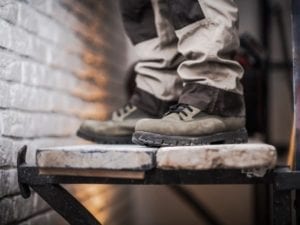Following a tough year of navigating project disruptions as well as material and labour shortages, construction industry stakeholders are opting to close their doors over the coming holiday period and take a much-deserved break, according to a survey done by intelligence hub Databuild.
CEO Morag Evans explains: “As part of keeping the industry informed about activities over the December period, we sent a questionnaire to contractors and professionals, including engineers, architects, and quantity surveyors, asking whether they intend working during December.” While not mandated by legislation, the traditional builders’ break is strongly observed by the entire construction industry, including contractors, sub-contractors, suppliers, and professionals. The holiday usually starts around mid-December and continues into the first and sometimes the second week of the New Year. “Unlike last year, where a significant portion stated their intention to use the December period as an opportunity to catch up on work delayed by the five-week compulsory shutdown brought on by the Covid-19 pandemic outbreak, this year the overwhelming consensus among respondents was that they would be closing for the holidays.” According to Evans, of the contractors surveyed, 63% said they intend closing for the builders’ break period (compared to 36% last year), while 27% said they would close between Christmas and New Year only (down from last year’s 40%). A further six percent plan to remain open throughout December, a decrease of three per cent from last year. Among the professionals surveyed, 65% indicated they will be closing for the builders’ break (up from 55% last year), while 22% plan to close between the Christmas and New Year holidays only – a slight increase from last year’s 20%.Eight percent intend to continue working throughout December, compared to 12% last year.
“While the survey sample is small and the results obtained anecdotally, it is clear from the responses received that the Covid-19 pandemic has had a marked impact on numerous construction role players,” says Evans. “However, the fact that most intend closing for the builders’ break – or even a part of it – seems to indicate that the industry is starting to show pocket-sized signs of recovery, despite the bearish economic climate. “While this certainly bodes well for 2022, the ever-looming threat of a fourth wave of infection outbreaks must not be overlooked, as this can easily slam the breaks on recovery, which the industry simply cannot afford,” she adds. “Consequently, in an industry where social distancing and other hygiene protocols can be difficult to implement and manage on site, construction stakeholders have an integral role to play in endorsing vaccine adoption. “It cannot be denied that the vaccine plays a significant role in preventing hospitalisation and death related to Covid-19. Whether employers are in favour of or against a mandatory vaccination policy, they have a moral and ethical responsibility to actively encourage their employees to have the vaccination. “Vaccine hesitancy among South Africans remains a serious concern and is negatively impacting the recovery of our country’s economy. Consequently, the education of employees on the benefits of the vaccine and the risks of not being vaccinated cannot be ignored and should be regarded as an economic imperative,” Evans concludes.






